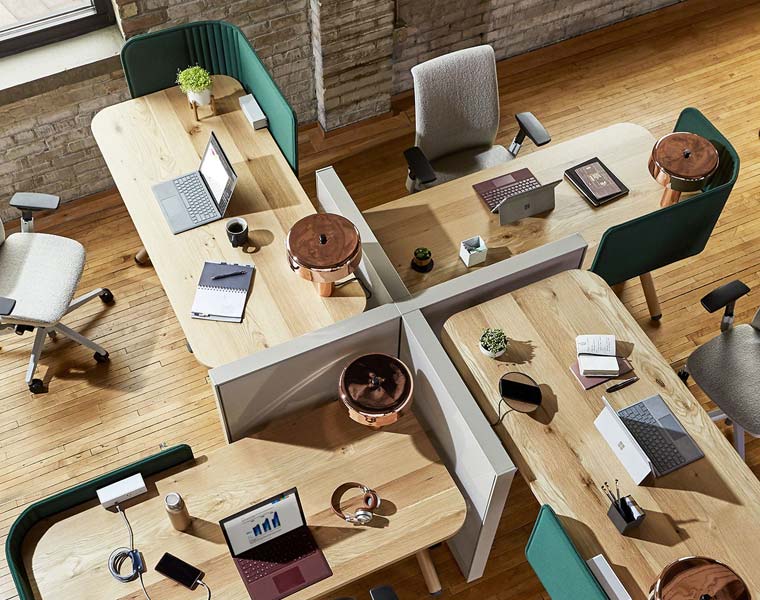We’ve now passed the twelve-month point, marking more than year of working from home and remote teamwork. As predicted, this agile and nomadic approach to work is now set to define a new era – the ‘new normal’ – so businesses are now in a period of pivotal transition.
As we mentioned in our previous article on how to downsize but not downgrade, for many businesses, this transitional period might involve a change of space entirely.
Some businesses are now considering the flexibility of co-working spaces, whilst others are maintaining a place to call their own but choosing to relocate to meet new requirements.
Here at Penketh Group, we’re pretty vocal about our belief that the shared workspace is still very much relevant in a post-pandemic world. (Did you catch our People Are Joy campaign celebrating the little things about office life we’ve all been missing?)

However, we do also appreciate the benefits of downsizing or relocating to new premises for the businesses of today who are trying to, not only survive, but also thrive in the landscape of tomorrow.
With that in mind, we wanted to share our advice on managing an office relocation project in 2021, so that you can make the move with as little disruption and hassle as possible.
How to manage an office relocation project in 2021
Managing a relocation project takes keen organisation no matter what the circumstances but given the state of flux that the world is currently in, there are some new things to consider – or at least a new lens through which to look at them through.

Let’s start from the very beginning, with choosing where to relocate to. This might be something you’ve already decided on, or a decision which is out of your hands but if you are still in the decision-making phase, here are some thing to keep in mind:
Picking your office location carefully
With the workspace becoming increasingly mobile and activity-based, being rooted in a bustling city centre is no longer a prerequisite when picking a workspace location. Remote working widens the talent pool and makes geography less of an anchor. This is something to think about when pinpointing your spot on the map.
That said, you do want to consider nearby amenities such as public transport, surrounding hospitality (restaurants, cafes, bars and hotels) and parking to facilitate staff even if they are flexibly working. You wouldn’t want to pick somewhere so remote that it deters talent.

Still on the topic of geographical location, it’s also important to:
Consider the dynamic of your teams
When thinking about the space itself and how you plan to furnish, configure and design it, you need to first assess how your individual employees and teams work.
Is yours the type of business that has a lot of tasks which require low noise levels and privacy for individual focus? Or are you the kind of company that relies heavily on dynamic collaboration, breakout sessions and impromptu idea-sharing.
Perhaps you’re a combination of the two. Whatever your company culture or approach to work, you need to support and facilitate this through the working environment and physical space you provide.

Consider how inclusive the new space is
Inclusivity within the workplace is more important than ever as the modern workforce continues to diversify every day – this includes your company culture as well as the physical space. When looking at your relocation, you’ll need to consider if the space allows your business to be as inclusive and accommodating as it needs to be.
Download our Inclusive Workplaces report for more info >
Work with a relocation partner you can rely on
Our final word of advice is one we stand by strongly: enlist the expertise of a professional office design, fit out and furniture partner to work with you on your relocation.
They will be best placed to:
- Support project management.
- Liaise with product manufacturers on lead times and best prices.
- Organise and execute the safe relocation of your existing furniture and technology.
- Advise on any improvements in terms of design and space configuration to address any issues or new requirements.
Using all of the pointers listed above as a framework around which you can organise your relocation project will go a long way to ensuring the process is as smooth and efficient as possible.



